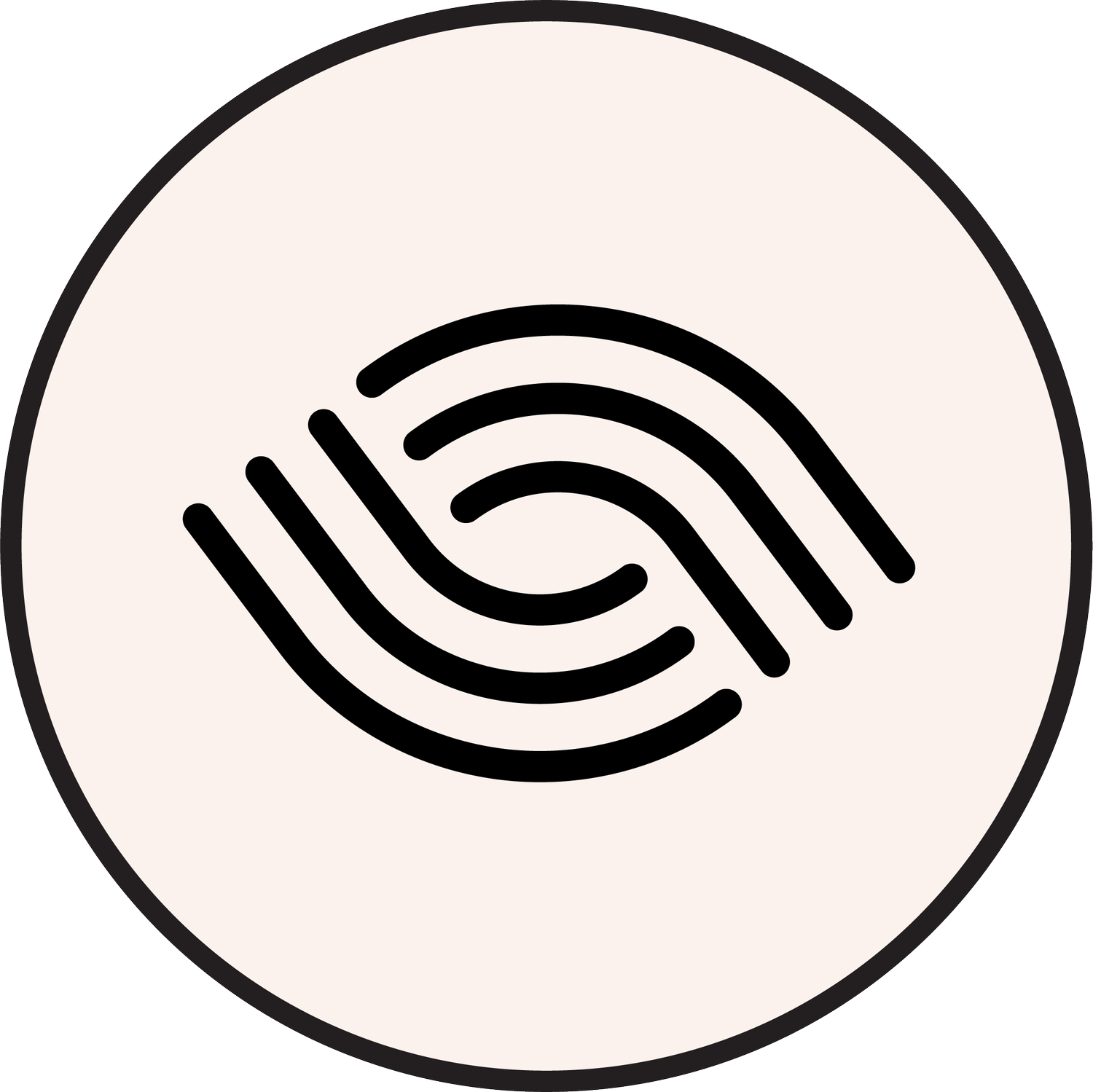Get Curiouser
A book and podcast to inspire intrinsic curiosity, transformational trust, and deeper learning in the workplace.

Expand your sense of playfulness and social joy.
Appreciate the variety and nuance in human behaviour and lean into the tapestry of possibilities within you, your team, and your organization.
Chapters / Episodes
-

Introduction
What does it mean to do the right thing? Have I done the right thing? Have others done the right thing?
Artists, philosophers, and physicians have wrestled with these questions for centuries.
What if we let go of knowing for certain what the right thing is?
How might conscientious curiosity, our moral imaginations, and our capacity for inquiry shift how we relate to the world and to each other?
-

A Beginner's Mind
Take a journey down the rabbit hole and learn some of the brain science and fairy tales that illuminate the workings of curiosity.
This podcast includes two original mindfulness exercises to savour everyday experiences and to learn how to switch between two key brain networks to satiate your contemplative and curious mind.
-

Live the Questions
Explore the tenents of inquisitive leadership.
How can we let go of our certainty to embrace our vulnerability? Where can we identify any unnecessary need to control and learn to adopt a spirit of inquiry?
Learn about one of the most inquisitive minds of the Renaissance, Michel de Montaigne, and hear about the research on curiosity in leadership by Polly LeBarre and Warren Berger.
-

Trust
Discover how leaders can foster a more trusting environment that encourages belonging and innovation.
Delve the neuroscience of trust. Explore how adopting a more trusting view of human nature enables an organization to thrive.
Learn about Jos De Block, whose human-centred leadership has earned him worldwide esteem. Enact six principles outlined by Dr Emma Seppälä to foster a more trusting environment in your workplace.
-

Genius
The old rules and regulations no longer apply. Employees and leaders must constantly adapt, questioning the procedures and processes that once served them. In this climate, our ability to stay passionate and curious has turned into our greatest asset.
Why might your C.Q. (Curiosity Quotient) be more important than your I.Q.?
How can you up your C.Q. at work and inspire greater curiosity within your organization?
Learn evidence-based strategies from Harvard Professor of Business Francesca Gino, and hear about some unconventional approaches to being a "genius."
-

The Good Life
What do Kanye West, Fredrico Fellini and Aristotle have in common?
Each are concerned with living the good life: experiencing fulfillment, happiness, and satisfaction.
Grounded in an exploration of brain science with special attention to Panksepp's SEEKING system, learn the neurobiological basis to living well and why mindfully managing our curiosity may the secret ingredient to living a good life.
-

Deep Learning
"Properly exploring our professional talents, managing a household, keeping a relationship going, creating a new business venture or engaging in politics will involve us in all manner of challenges that will deeply exhaust us and enervate us, provoke us, and wound us."
To learn deeply is not to take the safest, easiest path. To foster deep learning in organizations, leaders need to take a broad "learning horizon" and to encourage collective inquiry. It may feel uncomfortable to ask difficult questions, but in the longterm, leaders need to consider how action affects outcome across multiple systems.
As a leader, how can you learn to learn more deeply? To question your assumptions? To trust your own voice rather than to follow the most predictable path forward?
Hear about the impact of your inner daemon in fostering attitude of deep learning. Participate in a guided mindfulness exercise to get in touch with your wise inner voice.
-

Dopamine, Drive, and Discovery
Dopamine. It's a neurochemical making headlines.
It spikes when you play black jack. Check your likes on TikTok. Walk into a sweet shop.
Commonly mistaken as the "pleasure chemical," dopamine plays less of a role in stimulating feelings of pleasure than it does in seeking and anticipating reward.
It drives us onward in the pursuit of pleasure and fulfillment.
So, what role does dopamine play in acquiring insight and driving innovation?
Without it, we would lose our hunger to learn. To solve problems. To overcome adversity.
It helps us brew a morning cup of coffee and discover treatments for rare diseases.
Learn how to consciously cultivate your curiosity, so you can engage that "brain reward" system and stay motivated to go where you want to go and get where you need to be.
-

Crossfit Curiosity
Mindful curiosity awakens our sense of care, our clarity of mind, and our capacity for compassion.
To Michel Foucault, curiosity is "the care one takes of what exists and what might exist; a sharpened sense of reality, but one that is never immobilized before it; a readiness to find what surrounds us strange and odd; a certain determination to throw off familiar ways of thought and to look at the same things in a different way; a passion for seizing what is happening now and what is disappearing; a lack of respect for traditional hierarchies of what’s important and fundamental."
In this episode, dive deep into different types of curiosity.
Why might filling out crosswords, learning how to make Baked Alaska, and watching horror movies keep your brain fit?
What can you do to workout your epistemic, perceptual, embodied, empathetic, and morbid curiosity?
-

Of Two Minds
From behavioural economist Daniel Kahneman to neurobiologist Richard Sapolsky, researchers have long asserted that our minds and brains exist as relational systems.
There’s the quick thinker with speedy value judgements, and the slow processor who rationalizes our decisions.
There’s the angel who delays gratification, and the devil who indulges in it.
Most models of the mind are metaphors. All systems of the brain are theories.
But when we begin to understand the brain as a systems of networks or characters that interact, each of which influences the ways that we think and behave, make choices and set goals, it helps in our efforts to become more self-aware and to align our actions with our aspirations.
-

Grow with the Flow
When Paul Zollo interviewed Bob Dylan in 1991, he asked Dylan what the best environment is for creative work. Dylan said: “People need peaceful, invigorating environments. Stimulating environments.”
Whatever industry you work in, instead of focusing too heavily on competition and evaluation, why not foster peaceful, invigorating places to work?
Biologically, socially, and professionally, when we play, it is like breathing in fresh air. Deprived of play, we forget how much we need it.
Invite a playful perspective on problems. Invite harmless, playful fun into your workday.
Enjoy this episode on how to increase flow and play in the workplace.
-

Fear, Imagination, and Self-Awareness
Fear. Die Angst. La Peur. What is it?
Do we all have a unique fingerprint of fear? Or is it an essential, universal feeling?
Is fear a concept we've created? Or is it programmed in our genes?
What is the imagination? Where, in the brain, is the imagination?
In this episode of Curiouser, I get curious about new research into brain networks and how they may be responsible for differing states of mind.. The network of fear. The network of the imagination. The network of self-awareness.
Developing an appreciation of the brain as a system of connections can help us to learn and work more optimally. It can help us to accept fear without letting it us control us. To use our default state of awareness — the imagination — to our benefit. To increase our capacity of self-awareness, empathy, and insight.
-

Why Blueprints of Success Rarely Take Us There
There are quite a few blueprints for success out there.
Wake up at 5am, eat what so-and-so tech billionaire has for breakfast, and then take a bath in a tub of ice cubes.
In what they called the Dark Horse Project, Director of Harvard’s Mind, Brain and Education program, Todd Rose, and his colleague Ogi Ogas, a computational neuroscientist, interviewed dozens of “high fliers” from a range of industries. They found that the most fulfilled, the most successful hadn't followed a blueprint. Their careers were meandering to the point that they expressed embarrassment by all the twists and turns they’d taken.
The high-fliers hadn’t master the skills of stepping up the ladder. They’d mastered how to harness their individuality.
In the same way our culture tends to map out a blueprint for success, we seem to be obsessed with codifying the qualities of good leadership.
But theories and codes and abstractions are not what inspire us. The individuals behind them do.
-

Psychological Safety and the Art of Listening
What if success within organizations has less to do with efficiency, productivity, and high-performing individuals and more to do with sensitivity , candour, and psychological safety?
Why might listening be the most valuable and under appreciated skill for the 21st century?
-

Passion and Uncertainty
“I think curiosity is our friend. [it] teaches us how to become ourselves. It is a gentle, forgiving and constant friend. Curiosity is always there to tap you on the shoulder and say: ‘Hey, look over here. . .’”

Learn to lead creatively and pilot from the heart.
Develop your capacity to find innovative solutions to virtually any problem by calmly trusting your intuition and intrinsic spirit of exploration.

Communicate with compassion and nurture enduring trust.
Expand on and build up connections within your professional and personal relationships.
“Many things indicate that we are going through a transitional period, when it seems that something is on the way out and something else is painfully being born.”
— Peter Senge
